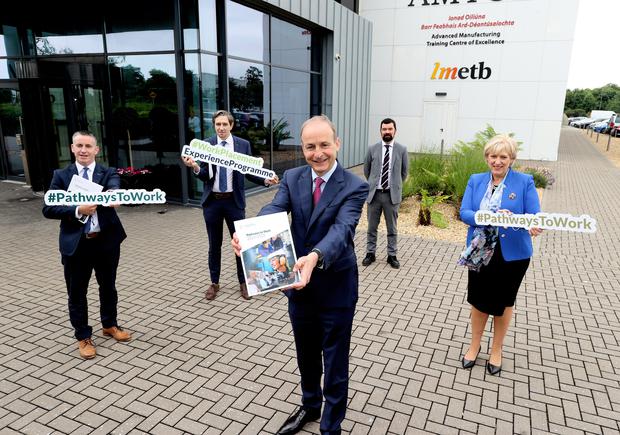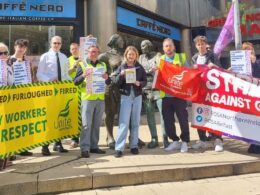By Catherine Finnegan
The government announced a new Pathways to Work strategy this week aiming to get 75,000 long-term unemployed people back to work as part of the post-pandemic economic recovery. One aspect of this strategy is the Work Placement Experience Programme which claims to provide 10,000 “quality” paid jobs; but it is nothing more than an excuse to super-exploit young, inexperienced workers, and support businesses.
Who benefits?
Jobseekers taking up the scheme will be required to complete 30 hours of training per week, in return for a mere additional €103 on top of their standard social welfare payment. This works out at a shocking rate of €3.43 per hour, far below the already paltry minimum wage and completely indefensible, but seemingly justified for people who cannot find work. In contrast, a separate initiative under the strategy will see businesses who take a worker off the Live Register rewarded to the tune of up to €10,000. This disparate rate of compensation illustrates who will really be benefiting from this strategy; businesses at the expense of workers, an unsurprising reality of the capitalist system.
The trade unions movement and all working-class people should completely oppose this scheme and any attacks on the Pandemic Unemployment Payment (PUP) that will likely follow. The PUP rate of €350 should be retained as the standard social welfare payment, given the high cost of living. Any reduction to previous rates can only be seen as punitive to those who cannot work.
Low pay economy
The pandemic exposed many failures of the capitalist system and highlighted that those who do the essential work our society needs to function, must be paid more than the bare minimum. A €15 minimum wage without exceptions should be fought for without delay, along with guaranteed hours to eliminate the precarity that low-paid workers are forced to contend with.
The government’s idea of job creation is inextricably linked to low pay and precarity. The new work experience scheme is remarkably reminiscent of the infamous JobBridge scheme in 2011, although the government has been quick to deny any similarities. The focus of this new strategy is on businesses, allowing them to intensify the rate of exploitation by underpaying workers to maximise profit.
Mick Barry TD has correctly asked, “why would an employer hire someone on decent wages and decent conditions…when they can get cheap labour of this kind?” and pointed out that this will be used to drive wages down. This strategy is a clear pathway to precarious jobs, low wages, and unfair working conditions. It does nothing to protect workers or create long-term stable jobs, which is vital to increase living standards.
State investment to create jobs
These jobs must be created through state investment and funded by taxation of the super-rich and big business. There is plenty of work to be done to tackle the many problems created by years of Fianna Fáil and Fine Gael governments. The focus needs to be on building public homes, investing in our health service, and creating green jobs such as reforestation, retrofitting homes and workplaces, and developing renewable energy, not using public funds to facilitate the super-exploitation of the working class to maximise profits.
Shamefully, none of these policies will be implemented by the government as they are beholden to business interests, most acutely shown by the repeated premature reopening of society throughout the pandemic. Economic recovery under capitalism always favours business interests and attacks working-class people and this new Pathways to Work strategy is just the latest example.












